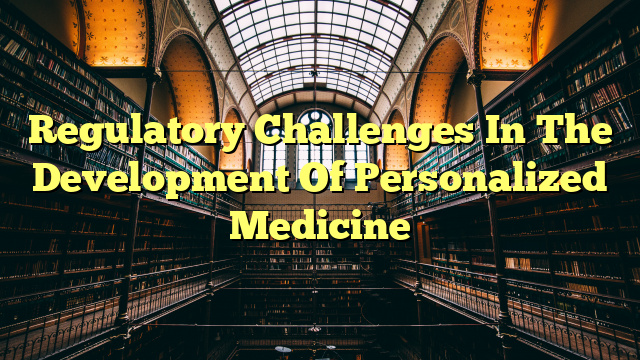Table of Contents
Challenges in Personalized Medicine
Personalized medicine, also known as precision medicine, holds great promise for improving patient outcomes by tailoring medical treatment to the individual characteristics of each patient. However, several challenges exist in the development and implementation of personalized medicine:
- Lack of regulatory guidelines for personalized therapies
- Complexity of integrating genetic and molecular data into clinical decision-making
- Privacy concerns related to the use of genetic information
- Cost of genetic testing and personalized treatments
- Ethical considerations surrounding the use of patient data for research
Current Barriers to Deployment
Despite the potential benefits of personalized medicine, several barriers are slowing down its deployment in clinical practice:
- Lack of reimbursement policies for personalized treatments
- Limited access to genetic testing and genomic data
- Insufficient evidence of the clinical utility of personalized therapies
- Resistance from healthcare providers to adopt new technologies and practices
- Concerns about the interpretation and communication of genetic information to patients
Challenges in the Clinical Setting
Advancing personalized and precision medicine in the clinical setting poses unique challenges that need to be addressed:
- Integration of genomic data into electronic health records
- Training healthcare professionals in genetics and personalized medicine
- Ensuring the privacy and security of patient data
- Coordinating multidisciplinary care for patients receiving personalized treatments
- Ethical dilemmas related to patient autonomy and informed consent
Limitations of Personalized Medicine
While personalized medicine offers exciting possibilities for improving patient care, it also has several limitations that need to be considered:
- Not all diseases have a genetic component that can be targeted with personalized therapies
- Genetic testing may uncover incidental findings that have uncertain clinical significance
- Cost-effectiveness of personalized treatments compared to standard therapies
- Limited diversity in genomic databases leading to disparities in treatment outcomes
- Regulatory challenges in approving and monitoring personalized therapies
Overall, personalized medicine holds great promise for revolutionizing healthcare, but overcoming the regulatory, clinical, and ethical challenges is essential for its successful implementation.

